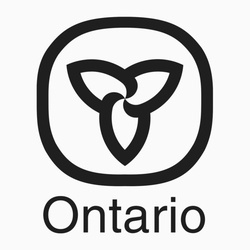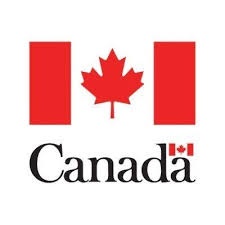
Green and Inclusive Community Buildings (GICB) Program
At a glance
- Minimum amount : 100,000 $
- Up to 80% of project cost
- Open Date : August 1, 2024
- Closing date : October 16, 2024
- Educational services
- Health care and social assistance
- Arts, entertainment and recreation
- Public administration
- Ontario
- Non-profit
- Public or Parapublic institution
- All revenue ranges
- All organization sizes
- Indigenous Peoples
- Culture and Arts
- Sports
- Other Recreation and Social Clubs
- Primary and Secondary Education
- Higher Education
- Other Education
- Mental Health and Crisis Intervention
- Other Health Services
- Social Services
- Environment
- Economic, Social and Community Development
- Housing
- Children and Youth Organizations
- Diversity and Inclusion
- General public
- Children & youth
- Seniors
- Indigenous peoples
- People with disabilities
- Rural / Remote communities
- Nonprofits / charities
- Low-income individuals / families
- All structures
- Local
- Municipal
- Regional
- Provincial
- National
Overview
The Green and Inclusive Community Buildings (GICB) program aims to improve the availability and condition of community buildings in underserved Canadian communities while promoting energy efficiency and reducing GHG emissions, offering up to a maximum of $25 million in funding for retrofits, repairs, upgrades, and the construction of new community buildings. Eligible activities include green retrofit measures that improve environmental outcomes and new building constructions that provide public services.
Activities funded
The Green and Inclusive Community Buildings (GICB) Program offers funding for projects that enhance the environmental efficiency and accessibility of community buildings in underserved areas of Canada. The focus is on both retrofitting existing structures and constructing new public-use facilities.
- Retrofitting, repairing, and upgrading existing publicly-accessible community buildings to improve environmental outcomes.
- Construction of new publicly-accessible community buildings that serve non-commercial purposes.
Eligibility
Eligibility for this grant is determined by specific requirements related to the applicant's profile and proposed project authority.
- Eligible applicants include municipal or regional governments established by or under provincial or territorial statute.
- Provincial or territorial governments are eligible to apply.
- Public sector bodies established by or under provincial or territorial statute or by regulation, or wholly owned by a province, territory, municipal or regional government, are eligible, including municipally-owned corporations and provincial or territorial organizations that deliver municipal services.
- Federally or provincially incorporated not-for-profit organizations and registered charities are eligible applicants.
- Indigenous recipients, including band councils, and First Nation, Inuit, or Métis governments or authorities established by self-government or land claim agreements, can apply.
- Federally or provincially incorporated not-for-profit organizations serving Indigenous peoples and not-for-profit Indigenous development corporations are eligible.
- Ineligible applicants include commercial and for-profit organizations, individuals, and private citizens, as well as federal entities including federal Crown corporations.
- Applicants must demonstrate authority to undertake the project on the building/asset or land.
Who is eligible?
Funding under the Green and Inclusive Community Buildings (GICB) Program is provided to a variety of eligible applicants aiming to improve community infrastructures in underserved areas. Prospective applicants must fall into one of the following categories:- Municipal or regional governments established by provincial or territorial statute.- Provincial or territorial governments.- Public sector bodies such as municipally-owned corporations, entities providing municipal services, or other forms of local governance outside typical municipal descriptions.- Federally or provincially incorporated not-for-profit organizations and registered charities.- Indigenous governing bodies, which include bands as per the Indian Act, self-government agreements, and development corporations serving Indigenous people.Additionally, applicants must have the authority to undertake projects on the concerned building or land. Ineligible groups include for-profit entities, individuals, and federal entities, including crown corporations.
Who is not eligible
The Green and Inclusive Community Buildings Program specifies certain entities that are not eligible to apply for the grant. The aim is to direct funds towards deserving community-oriented projects.
- Commercial and for-profit organizations.
- Individuals and private citizens.
- Federal entities, including federal Crown corporations.
- Projects to be undertaken in federally-owned buildings.
- Buildings primarily engaged in for-profit or commercial activities.
Eligible expenses
Eligible expenses for this grant include costs directly necessary for the successful implementation of eligible projects.
- Costs incurred between April 1, 2021, and March 31, 2029.
- Costs to build, renovate, expand or improve fixed capital assets and community buildings.
- Professional fees for technical personnel, consultants, and contractors specifically engaged for the project.
- Environmental assessment, monitoring, and follow-up activity costs as required by relevant legislation.
- Costs for public announcements, official ceremonies, and required signage.
- Costs for Indigenous consultation and engagement activities.
- Other costs considered direct and necessary for successful project implementation and approved in advance.
- Salaries, wages, and other incremental costs if economically infeasible to contract and approved in advance.
- Legal fees (excluding litigation) for Indigenous and not-for-profit recipients as specified in contribution agreements.
Selection criteria
The selection of projects under the Green and Inclusive Community Buildings Program (GICB) is based on a comprehensive evaluation of specific criteria to ensure they meet the program's objectives and deliver maximum community benefits.
- Located in and demonstrates the ability to serve one or more communities with high needs: Projects in high need areas receive a higher score.
- Increased accessibility: Projects enhancing accessibility and meeting the highest standards for accessibility will receive a higher score.
- GHG Reductions: Projects demonstrating greater GHG emission reductions compared to the building’s baseline receive a higher score.
- Energy Savings: Projects achieving at least 25% improvements in energy efficiency over the building’s baseline are scored higher.
- Climate resiliency and best practices adoption: Projects with strong climate resiliency considerations score higher; detailed justifications must be provided if not applicable.
- Confidence in delivery/risk: Projects with a robust risk assessment and practical mitigation measures score higher. This includes detailed budgeting information, community consultation outcomes, and permit readiness.
How to apply
Check Eligibility
- Ensure that your organization and project are eligible under the GICB criteria.
- Determine the size of your project to identify the correct application stream (small/medium or large/new builds).
Prepare your Application
- Gather all necessary project information, including details of the building, retrofit or new construction specifics, and energy profiles.
- Use the RETScreen® Expert software if applicable, particularly for retrofits, to calculate energy efficiency and GHG reductions.
- Prepare documentation that supports the project’s eligibility, such as proof of authority over the building.
- Plan and document the project’s budget and funding requirements, considering federal contribution limits.
- Prepare required attestations and endorsements.
Submit the Application
- Log into the Housing, Infrastructure and Communities’ online application portal.
- Fill in all required application sections and upload all necessary documents.
- Submit the application before the deadline (October 16, 2024, at 15:00 Eastern Time).
Confirmation of Submission
- Receive an acknowledgement or confirmation from the application portal.
- Track the status of your application through the portal.
Additional information
Here are additional relevant details for this grant:
- Projects must be implemented no earlier than April 1, 2021, and completed no later than March 31, 2029.
- Projects in excess of $25,000,000 may be considered on a case-by-case basis.
- Large retrofits and new builds are evaluated on a competitive basis.
- A RETScreen® assessment is required for retrofit projects.
- Successful applicants must comply with reporting and audit requirements, including potential community employment benefits reporting for projects over $10 million.
- Recipients undertaking projects with total eligible project costs of $10,000,000 and above will be required to report on Community Employment Benefits.
- Environmental assessments and Indigenous consultations may be required depending on the nature and location of the project.
- Procurement contracts exceeding $100,000 require approval for non-competitive processes.
- Contribution agreements will specify terms for funding and reporting, which include annual and final reports.
- Disposal of funded assets within six years of project completion may require repayment to the federal government.
- Expenditures must comply with confidentiality and privacy laws under Canadian legislation.
- Public disclosure of project details may occur, including recipient names and funding amounts.
Contacts
Frequently Asked Questions about the Green and Inclusive Community Buildings (GICB) Program Program
What is the Green and Inclusive Community Buildings (GICB) Program?
How much funding can be received?
What is the deadline to apply?
Who is eligible for the Green and Inclusive Community Buildings (GICB) Program program?
What expenses are eligible under Green and Inclusive Community Buildings (GICB) Program?
Who can I contact for more information about the Green and Inclusive Community Buildings (GICB) Program?
Where is the Green and Inclusive Community Buildings (GICB) Program available?
More programs like this
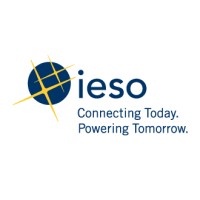
First Nations Community Building Retrofit Program
Independent Electricity System Operator (IESO)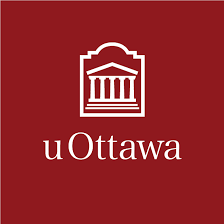
Court Challenges Program (CCP)
University of Ottawa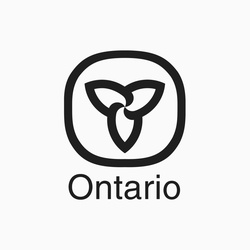
Ontario Anti-Hate Security and Prevention Grant (2025-26)
Government of Ontario
OTF — Organizational Mentors
Ontario Trillium Foundation (OTF)
Enabling Accessibility Fund — Small projects
Employment and Social Development Canada (ESDC)
Eco-Roof Incentive Program
City of Toronto
Community Economic Development (CED)
City of Ottawa
APCHQ — Affordable Housing Innovation Fund
Association des professionnels de la construction et de l’habitation du Québec (APCHQ)
Language Interpreter Grants
Ministry of Children, Community and Social Services (MCCSS)